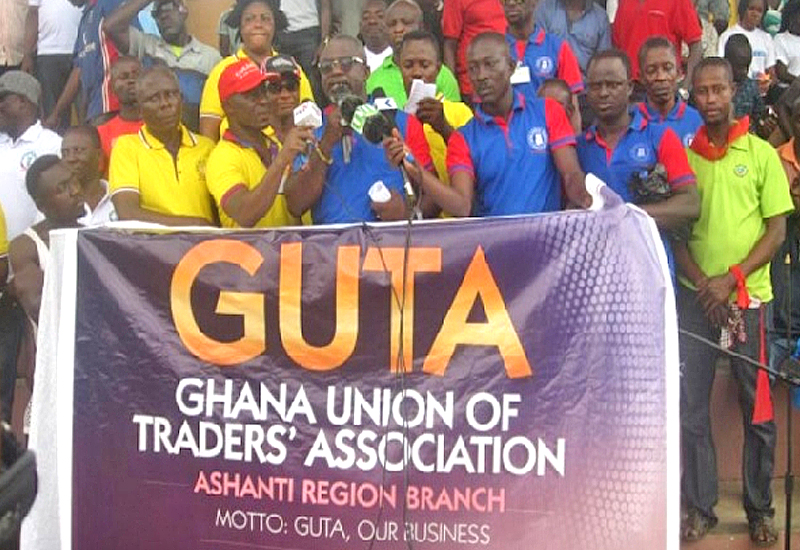The Ghana Federation of Labour (GFL) on Tuesday said the removal of the benchmark value on some 32 items by the Ghana Revenue Authority (GRA) would worsen the plight of industries.
Mr Abraham Koomson, GFL Secretary-General, reacting to the demand for the removal of the benchmark value, told the Ghana News Agency that it would lead to an increase in production cost for industries and appealed to the government not to heed the request.
Mr Koomson said, “GFL’s anticipation for the upcoming budget are policies to stimulate the growth of local industries to create jobs was dashed when the GRA preceded with a directive to remove benchmark values on essential commodities imported to augment production in the country.”
Mr Koomson said, “GFL’s anticipation for the upcoming budget are policies to stimulate the growth of local industries to create jobs was dashed when the GRA preceded with a directive to remove benchmark values on essential commodities imported to augment production in the country.”
The local manufacturing sectors that would be adversely affected by the removal were the pharmaceutical industry, shoes, sandals and leather- wear as well as textiles.
He explained that some important raw materials such as clinker for the production of cement was not available in Ghana and had to be imported by the cement manufacturing companies.
Touching on the peculiar effect of the textile industry, he said, “currently cotton production or farming in the country is nonexistence and the industry depends on imported raw cotton and grey baft, chemicals and dyestuff are also imported.”
Mr Koomson said the benchmark value removal from machinery was not the best, explaining that local manufacturing plants were routinely maintained using imported spare parts and other accessories.
The GRA in a letter dated November 11, 2021, and signed by the Reverend Ammishaddai Owusu-Amoah, Commissioner-General, announced the removal of benchmark values on selected items with effect from November 15, 2021, as part of measures to “achieve revenue effect.”
The 32 affected items include palm oil, crude and refined oils, noodles, toilet and facial tissue, chocolate, clinker, mosquito coil, vehicles, ceramic tiles and aluminium products.
Others are cartons, water, plastic, tile cement, textiles, iron steel, fruit juices, tomato paste, cement paper bags, furniture and parts, toilet and laundry soap, detergents, soft drinks, alcoholic beverages, pharmaceuticals, cigarettes, machinery and equipment as well as biscuit.
Meanwhile, Mr Habibu Adams, Senior Economist at the office of the Senior Presidential Advisor, Mr Yaw Osafo-Maafo, explained that the review of the benchmark value was to help save the Ghanaian manufacturing sector.
Responding to a question on the effect of the removal of the benchmark value on consumers during an engagement with the Ghana News Agency, Mr Adams noted that the removal was good for the protection of local industries.
Mr Adams explained that even though the government based on the plea of the various trade associations, including the Association of Ghana Industries (AGI) and Ghana Union of Traders Association (GUTA), among others some two years back, it had become necessary that it had to remove the 32 selected items.
He said it was realized that due to the benchmark value, people imported goods that were produced in the country without paying taxes, which ended up making the imported goods cheaper than the locally produced ones.
According to him, because it turned out that importing was much better, people stopped producing and also started importing, a situation which he noted did not help the Ghanaian economy.
This led to some concerns by the local producers and after consultations with relevant stakeholders, it was agreed that the said items must have the benchmark value removed.
“After the implementation, they came back to complain that it was killing the local industries, so it was decided that those that we have a competitive advantage in, we have to remove the benchmark from it so our products can sell and the local industries protected,” the Senior Economist stated.
Source: Ashantibiz
Submit your stories or articles to us via WhatsApp +233-245092915




